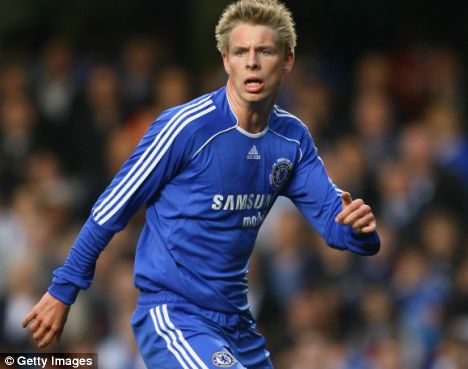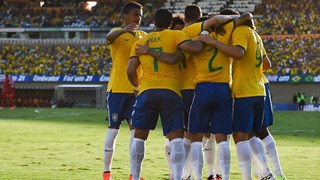 Sheikh Mansour has had a taste of it at Manchester City. To a lesser extent, Roman Abramovich has had a similar lesson at Chelsea. And it’s the same lesson currently being learned the hard way at Chinese Super League side, Shanghai Shenhua – buckets of cold hard cash neither entitles nor guarantees you success.
Sheikh Mansour has had a taste of it at Manchester City. To a lesser extent, Roman Abramovich has had a similar lesson at Chelsea. And it’s the same lesson currently being learned the hard way at Chinese Super League side, Shanghai Shenhua – buckets of cold hard cash neither entitles nor guarantees you success.
A relatively slow trend is emerging of aging footballers moving to Chinese football from Europe’s top leagues, in search of a last megabucks deal before they retire, or perhaps for the challenge of playing in an emerging league. Didier Drogba, the former Chelsea frontman is the latest acquisition for the would be Chinese giants, signing for Shanghai Shenhua on a two and a half year deal reportedly worth £200,000 a week. Drogba follows in the footsteps of his former Chelsea teammate, Nicolas Anelka, who has been at the Chinese club for some time now, and who has already enjoyed a spell as player-manager. The move of such two high-profile players who have accumulated 154 international caps between them, and who have plied their trade in the joint greatest football league in the world will certainly attract attention to the Chinese Super League. In recent weeks and months, rumours of other relatively top players have circulated concerning Chinese moves – Jimmy Bullard, Yakubu and Ronaldinho to name but a few have all been linked with moves to the summit of Chinese football. Now, whether there is any truth in these reports remains to be seen, however, they at least demonstrate that the Super League is growing in stature, if only in the minds of the press.
It’s hard to know whether to take China’s football attempt seriously. Are these teams playthings for the rich and wealthy or is there a genuine effort underway to transform football within the country? The league as a whole has had somewhat of a tainted past. Gambling and match fixing has been rife, and even more worrying was the corruption resulting in the scandal of 2010. Three former CFA vice-presidents have been arrested, the trials of officials, referees and managers have already begun while the Chinese government has launched a nationwide action to revive the sport. Simon Chadwick, professor of sport business strategy at Coventry University sees Chinese club ownership as a way to gain political influence. “Essentially they are vanity projects,” Chadwick said speaking to CNN.
“There is a Chinese phenomenon known as ‘guanxi,’ which translates literally as ‘special relationship,” he explained. “Buying a club gives an owner good ‘guanxi,’ because it enables you to connect with politicians and other business people. Very often owners buy into clubs for those reasons. If Chinese football is successful globally, it makes China look good and it makes the politicians look good. What buying a club does is give the owners a certain amount of political influence.”
There may indeed be an element of truth in Chadwick’s analysis. By the looks of things, a concerted effort is being made to ensure Chinese football raises itself from the gutter and move onwards towards greater things, for reasons we may not know. While at present the level of football on a club and national basis is relatively dire, a system of youth training facilities are being set up across China. The CFA is beginning to send promising youngsters between the ages of 12 and 18 to countries such as England, France and Spain to receive professional instruction, in the hopes of producing a generation of better educated young stars who will go on to play for the country’s club and national sides. In the Super League, clubs are attempting to win back the fan base. Wealthy owners are signing big names to play on the pitch or manage from the sidelines, lending an air of professionalism to the league, whose integrity has long been suspect thanks to China’s love of gambling and apparent match fixing.
But in China, football isn’t the majority sport; it’s one with a minority following, due quite substantially to the sport’s bad reputation. And the ordinary fan on the street isn’t the little brother in a poor family, begrudgingly accepting hand-me-downs. “All these players going over there are past their prime and looking for one last big payday which will see them through for the rest of their lives,” agent Rob Shields told CNN. “It’s definitely money motivated.” People want to see genuine football stars in the prime of their careers, motivated by glory and trophies rather than a last huge cheque. “They’re not prepared to accept Europe’s castoffs,” Chadwick maintains. “They don’t want Anelka and Drogba. They want Barrios and Conca, and then the likes of Bastian Schweinsteiger, Wayne Rooney and Sergio Aguero. Players who are in their early to mid-20s and reaching the peak, it would be those people who would be much more significant. Then the floodgates will open.”
At present, Shanghai Shenhua currently sits in 12th place in a 16 team league. In stark contrast, at the summit lies Guangzhou Evergrande, another Chinese club which has seen investment in recent years. Prospects for the future must be good, however. As Chinese clubs compete for higher honours and better players the league will gain greater publicity and respect, surely drawing further investment from wealthy businessmen searching for their latest toy or those genuinely interested in the fate and reputation of Chinese football. But what they really need is to put their money towards youth development. “Chinese football clubs are investing very little in grassroots,” said Chadwick. “Investment and spending is heavily skewed towards the professional level and not towards the development of the game.” In the long run it will save them money. Don’t look to Manchester City for your example. Look to Barcelona and the production line that is La Masia, the tiki-taka brand of football which permeates right through to the national team. Spend money, sure, bring in the world-class talents if you can. But as Barcelona and the Spanish national side have found out to their benefit, there’s nothing like home-grown.



